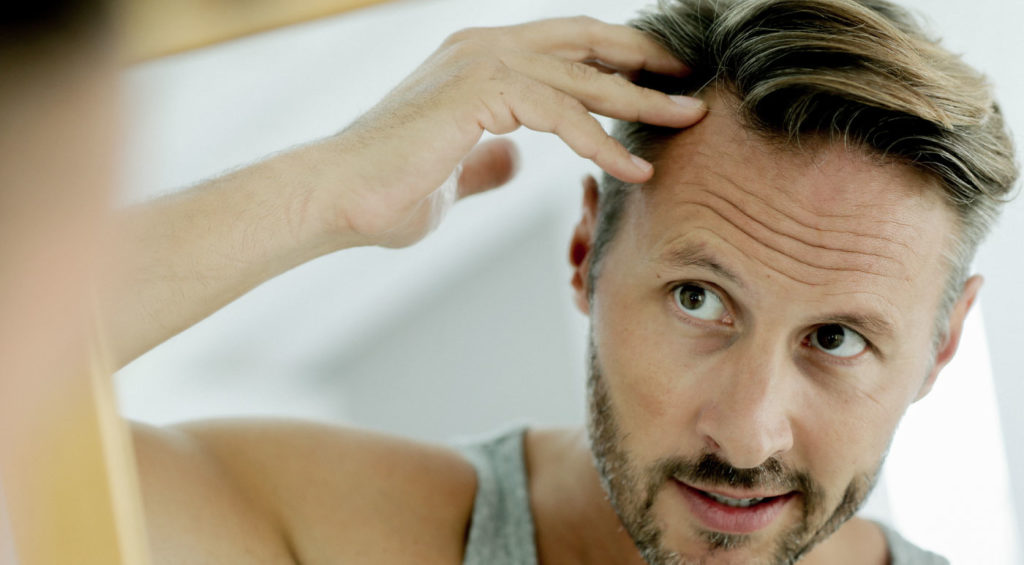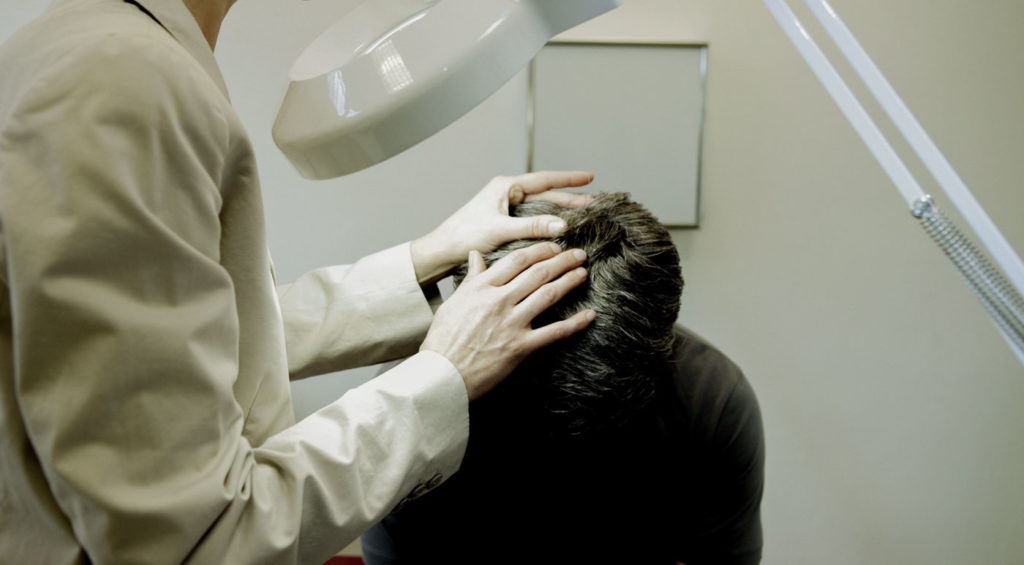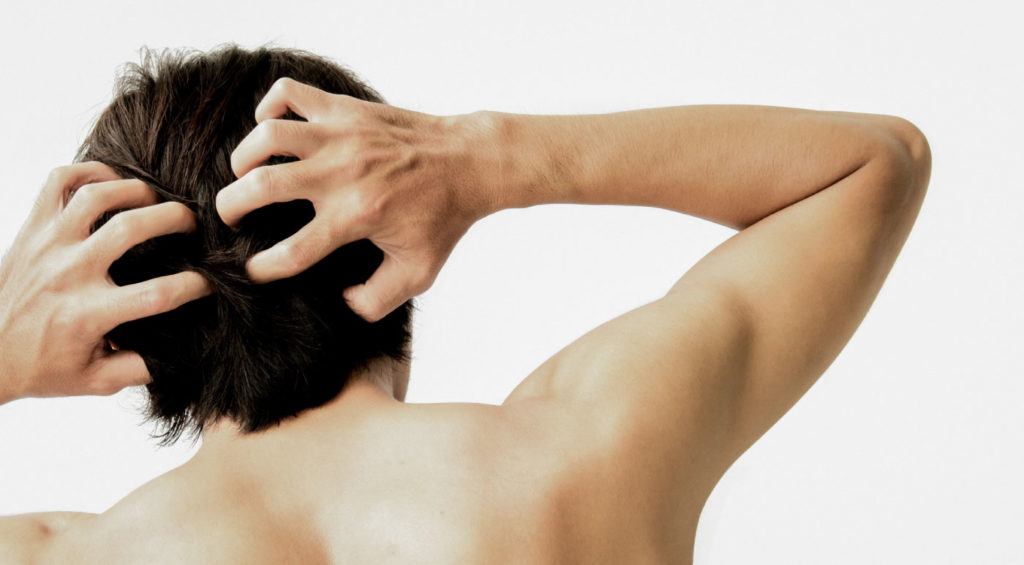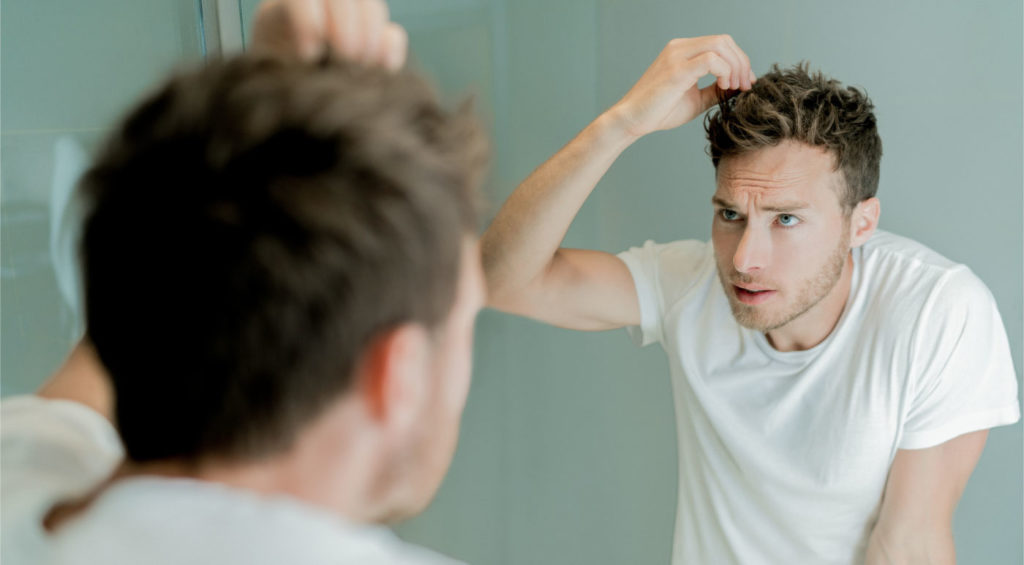
Seeing your hair fall out can be a devastating experience, but it’s not exactly uncommon. In the view of society, a full head of hair symbolizes health and wellness. It is no secret that many people wish to avoid hair loss and restore hair growth, sometimes by any means necessary. But is CBD for hair loss really an option?
Hair loss can occur for several reasons, from male-pattern baldness to chemotherapy treatment, to hormone imbalances, to autoimmune causes, to stress. It makes sense that remedies for hair loss depend on the cause. For instance, hair loss caused by chemotherapy generally grows back after treatment ends, whereas hair loss from hormone imbalances may not return after, or if, hormone balance is restored.
Some causes of hair loss are not within our control, while others can be modified. For instance stress levels, nutrient deficiencies, and inflammation which can impede hair growth are circumstances we may be able to change.
Natural supplements and hair products are a $122 billion dollar industry. If you look online, you will see a new trend of hair products that include CBD. Are these companies just trying to capitalize on the buzz surrounding CBD — or can CBD truly help with hair loss?
Table of Contents
- CBD for Hair Loss: Just the Facts
- The Causes of Hair Loss
- Current Hair Loss Therapies
- Can I Prevent Hair Loss?
- CBD for Hair loss
- Final Thoughts on CBD for Hair loss
CBD for Hair Loss: Just the Facts
Hair loss happens for a variety of reasons, and it affects 30% of people and half of men. Current treatments for male pattern baldness include medications and topicals, which are harsh and have many side effects. CBD is a potent anti-inflammatory and can help reduce the stress response, which are two factors tied to hair loss. To date, we do not have research on CBD for hair loss directly, so it is unclear if CBD is helpful for hair loss.
But there are some promising revelations surrounding the idea of using CBD for hair loss and there’s some additional facts we do know for sure.
The Causes of Hair Loss

Hair loss happens for numerous reasons. Examples of common causes include:
- Male pattern baldness
- Female pattern baldness
- Thyroid issues
- Fungal infections
- Autoimmune conditions
- Chemotherapy
- Extreme nutrition or protein deficiency
- Iron deficiency (anemia)
- Harsh hair styling
It is estimated that half of all men will experience some level of male pattern hair loss in his life and “shedding” hair for women is a fairly natural and normal occurrence.
Current Hair Loss Therapies
As previously mentioned, the type of therapy used for hair loss depends on the cause of hair loss. For instance, hair loss due to thyroid issues requires correcting thyroid hormones, and hair loss due to chemotherapy will likely return to normal after chemotherapy is completed.
Some solutions are more straightforward than others. One area that is prevalent and a challenge to treat is male pattern baldness.
Understanding Male Pattern Baldness
Male pattern baldness has a genetic link, meaning you are more susceptible to it if it runs in your family. However, there are hormonal influences as well. When the hormone testosterone gets converted into dihydrotestosterone (DHT), it can cause the hair follicles to be weakened, resulting in hair loss.
Usually, hair loss occurs around the temples and the crown of the head. Males can experience male pattern baldness at any time in their adult life.
There are medications to address this process. The most common medications are minoxidil and finasteride.
Medications for Male Pattern Hair Loss

Finasteride (Propecia) is an oral medication which stops the conversion of testosterone to DHT which therefore can prevent further hair loss. In many cases, hair grows back after a couple of months; however, it will fall out again after a person stops taking the medication. The downside is the side effects, which include:
- Depression
- Skin rashes, itching, or hives
- Breast tenderness or growth
- Infertility or difficulty getting an erection
- Painful ejaculation or pain in testes
- Swelling of the face or lips
Minoxidil, also known as Rogaine, is a topical cream that stimulates hair growth by dilating blood vessels to the scalp. It can help promote hair growth but does not protect against DHT. Therefore if the follicles are already destroyed by DHT, minoxidil will not work.
This treatment takes about four months to work, and hair will fall out once you stop using it. Also, many people experience side effects, such as scalp irritation, redness, scaling, and burning.
Other Therapies for Male Pattern Baldness
In cases where these medications are not sufficient, hair transplants are an option. This is a surgical procedure which removes hair follicles from other areas of the scalp and inserts them into the areas of hair loss. These follicles are not susceptible to DHT, therefore will not fall out.
Many people with hair loss also turn to alternative therapies such as vitamins, minerals, herbal, and supplements. There is some research on these holistic approaches, but it is not as strong as the conventional approaches.
Can I Prevent Hair Loss?

There are specific triggers for hair loss which can be prevented. These include stress, inflammation, nutrient deficiencies, and fungal infections. When hair loss is due to autoimmune conditions and genetics, however, preventing hair loss is not as simple.
Understanding the cause of your hair loss is key to finding the appropriate therapies to manage it.
CBD is known to have anti-inflammatory properties as well as potentially help reduce stress and anxiety. Although CBD cannot change your genetics, could it be helpful for hair loss without the harmful side effects of other medications?
Let’s look at what we know so far.
CBD for Hair loss
There has not been much research directly on CBD for hair loss yet.
Research does support that the endocannabinoid is likely involved in skin and hair follicle regulation. The fine details of how the endocannabinoid system, and CBD influence hair growth and skin health are not completely clear as of yet.
What we do know is CBD stimulates the endocannabinoid system. CBD activates CB1 and CB2 receptors within this system, which has a host of effects including lowering inflammation and reducing stress and anxiety. If hair loss is caused by stress, anxiety, or inflammation, it is possible CBD may be helpful for this type of hair loss.
There is no evidence that CBD influences the conversion of testosterone to DHT. Therefore it is unlikely that CBD can help prevent or reverse male pattern baldness. However, we still need more research in this area.
Many CBD hair companies claim that CBD contains high levels of fatty acids and minerals. However, most third-party testing of CBD does not assess mineral and fatty acid levels. This means these claims might be unsubstantiated.
In summary, there is some research around CBD for hair loss that is promising and it poses a hopeful future of hair loss medication free of disastrous side effects. However, it is too soon to tell if CBD can really help with hair loss.
Final Thoughts on CBD for Hair loss

People are using CBD for a variety of conditions — from pain to stress, and even seizures — with excellent results. Many hair products are now including CBD in their mixtures, and are also reporting CBD helps with hair loss.
Although CBD is known to stimulate the endocannabinoid system, which then decreases inflammation, stress, and other processes in the brain and body, there has been next to no direct research on CBD for hair loss.
Also, hair loss can be caused by numerous conditions, so no one therapy can help with all forms of hair loss. Research shows that both stress and inflammation can lead to hair loss. If these factors cause a person’s hair loss, CBD may be useful. However, we do need more studies looking at whether topical or oral CBD can help manage hair loss.
In short, we really don’t know whether CBD for hair loss works. We need more research in this arena to draw any valid conclusions, but there are also definitely reasons to be hopeful.
